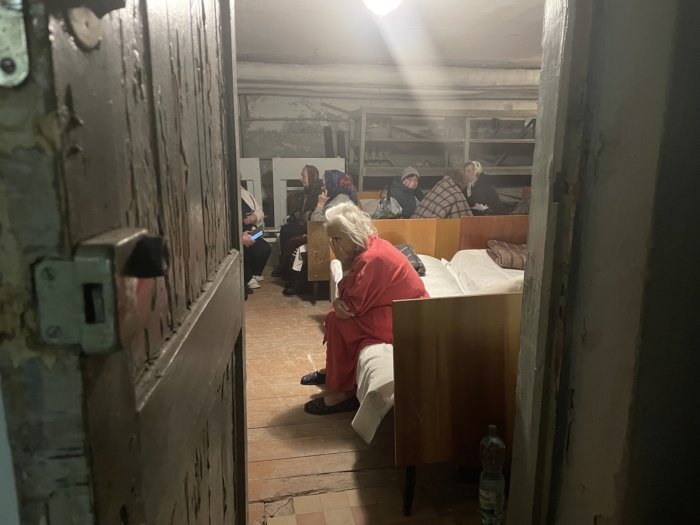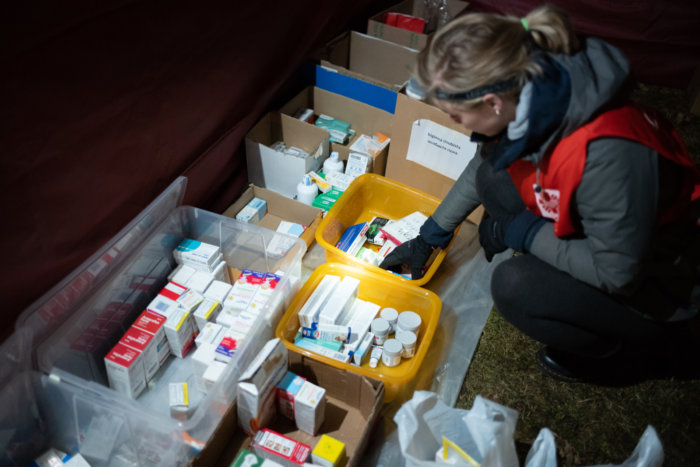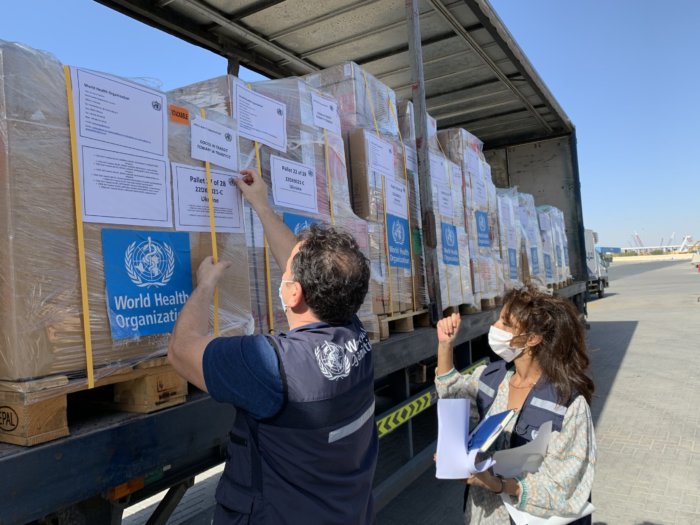One Year of War in Ukraine: Looking back & moving forward

Credit: WHO / Marta Soszynska
Svetlana, a 50-year-old mother of four, had built a happy life in Burhnovka, Ukraine, a village near the Black Sea port of Mykolaiv. She cultivated her own garden, supported her family by selling fresh produce and looked forward to spending her golden days with them. But the war shattered everything. In just three days, her village fell, and Svetlana endured months of occupation before her home was destroyed in a bombing raid. She was forced to flee to the Republic of Moldova and left her beloved father behind.
Svetlana’s harrowing story is one of survival and resilience in the face of overwhelming trauma. The war has left the people of Ukraine with deep emotional scars. According to WHO’s global estimates, about one in five people in conflict-affected areas has some form of mental health condition, ranging from mild depression to psychosis.

Credit: WHO / Kasia Strek
A year of devastating war has affected both the mental and physical well-being of millions of Ukrainians, as evidenced by staggering numbers of civilian casualties recorded by UN High Commissioner for Human Rights, which as of 13 February 2023, stood at 18,817 with 7,199 killed and 11,756 injured.

Credit: WHO / Olha Izhyk
The war has cost Ukraine’s health system $1.4bn. Access to healthcare remains challenging. Sixty-six percent of adults have faced at least one problem when trying to access primary healthcare. One in 10 struggles to access medicines and the situation is worse for communities in the areas where hostilities are, or have been, conducted.

CREDIT: WHO / Agata Grzybowska / RATS Agency
WHO was on the ground in Ukraine in February 2022 when the conflict began. Since then it has coordinated a range of health interventions, and distributed critical medical supplies across the country, to support local and national authorities and maintain a functional healthcare system.
The WHO Foundation raised US$8.3 million for the WHO Emergency Appeal for Ukraine. The funds were sourced from partnerships, philanthropists and the general public, and attracted the support of celebrities including Harry Styles, Wladimir Klitschko, and Ellie Goulding through the Human Kind campaign.
Funding from the WHO Foundation has helped WHO’s life-saving response in Ukraine, including:
- Health interventions for nearly 8.4 million people
- Medical and healthcare supplies amounting to 2,900 metric tonnes
- Medical evacuations of 1600 people to 18 countries
- Trauma treatment and emergency surgery for 35,000 patients
- Mental health and psychosocial support during 23,000 consultations
- Vaccinations for COVID-19, diphtheria, measles and polio (41,000)

Credit: WHO / Robert Blanchard
Without health, society cannot function; it cannot heal, it cannot rebuild.
WHO needs long-term funding to help Ukraine’s healthcare system become self-sufficient. US$240 million will be needed to provide health assistance to 11.4 million people in 2023. The funds will help to finance training for healthcare workers, mental health and psychosocial support provision and rehabilitation efforts, among many other areas.
To facilitate post-war recovery, it is essential to maintain basic health services in areas affected by war in the short term, while also investing in longer term health system transformation.
Donate to support WHO Health Emergency Appeal for Ukraine: https://www.ukraine.who.foundation/

